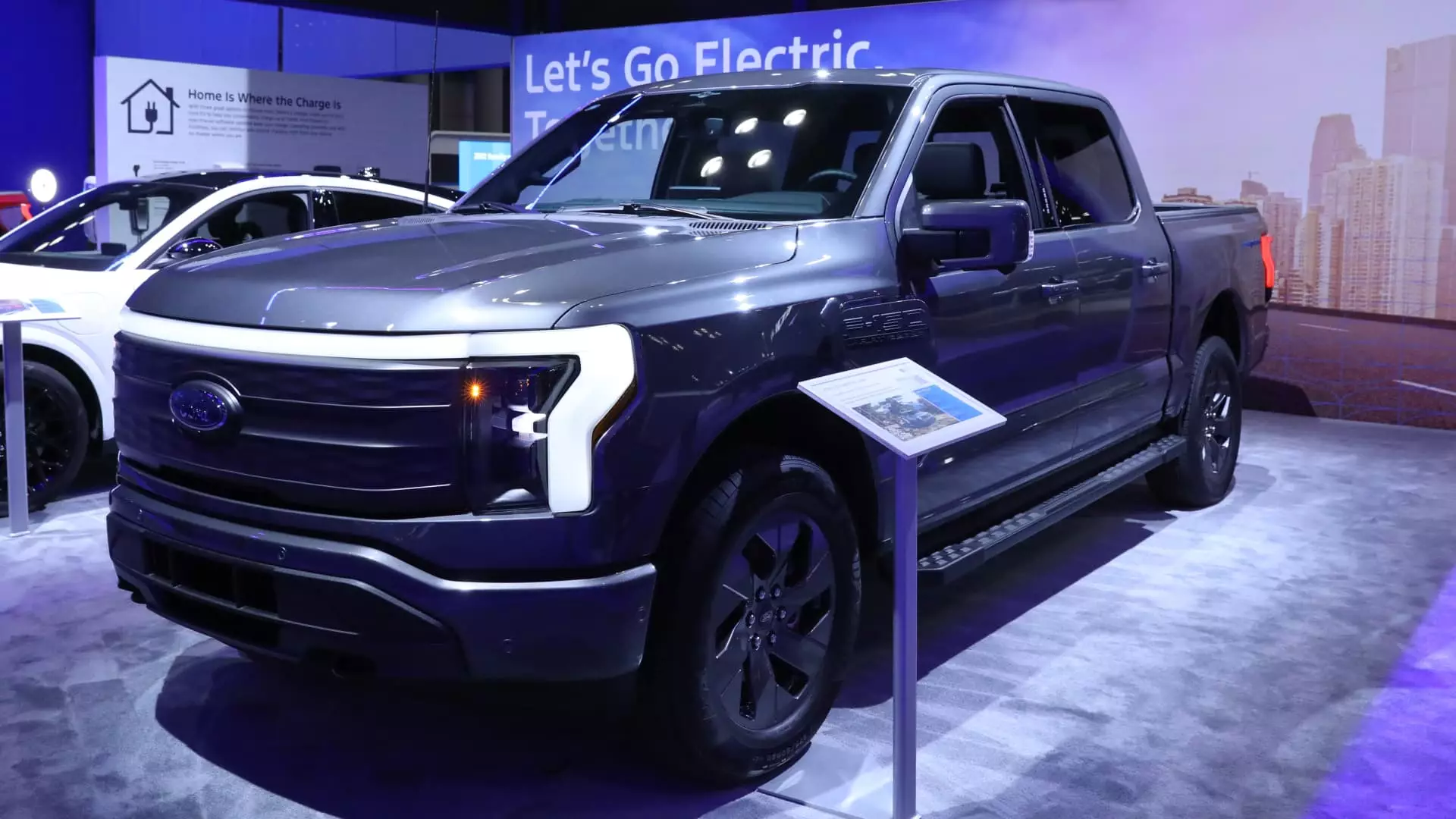Ford Motor has recently announced a significant price reduction for some of its all-electric F-150 Lightning pickup trucks. This decision comes in response to quality issues that forced the automaker to halt shipments in early February. The price cuts range from $2,000 to $5,500, with the mid-level Flash trim experiencing the most significant decrease, now priced at $67,995, $5,500 lower than before. Additionally, Lariat models are now priced at $74,995, down by $2,500, and XLT models have been reduced by $2,000 to a new price of $62,995. However, the entry-level Pro model and top-end Platinum model prices remain unchanged. These adjustments reflect the challenges faced by Ford in the highly competitive electric vehicle market.
The shift in prices for the F-150 Lightning models is a direct response to consumer demand and slower-than-expected adoption of electric vehicles in the industry. Ford’s Chief Operating Officer, Kumar Galhotra, highlighted the need to adapt to market fluctuations and inventory levels. The adjustments aim to find the right balance and sweet spot for pricing in a rapidly evolving technological landscape. Galhotra emphasized the complexities of electric vehicle technology and the continuous software updates required to ensure quality and address potential defects. The recent quality issues necessitated a pause in shipments to rectify small but critical problems before resuming deliveries.
Ford’s manufacturing processes have faced significant hurdles in ensuring the quality and reliability of its vehicles. The company’s decision to delay shipments of gas and diesel versions of the F-150, coupled with recent recalls and warranty costs, demonstrate the high stakes in automotive manufacturing. The company’s efforts to prioritize quality over speed and volume reflect a commitment to customer satisfaction and long-term brand reputation. In response to the production delays and quality concerns, Ford has implemented dealer incentives, including stair-step programs, to boost sales and meet targets. These initiatives aim to accelerate sales and streamline the distribution process while managing costs and inventory levels.
Ford’s focus on quality assurance is evident in its rigorous testing and inspection processes to ensure that every vehicle meets the highest standards. The company’s significant warranty costs, totaling $7 billion to $8 billion annually compared to traditional competitors, underscore the financial burden of maintaining quality and customer satisfaction. The complexities of launching new models, such as the F-150 Lightning, require meticulous attention to detail and continuous improvements to address any issues promptly. Ford’s commitment to delivering flawless vehicles to customers reflects a long-term strategy to build trust and loyalty in an increasingly competitive market.
Ford’s experience with the F-150 Lightning highlights the ongoing challenges faced by automakers in balancing quality, cost, and consumer demand. The price adjustments and production delays underscore the complexities of manufacturing and distributing electric vehicles in a rapidly changing industry. By prioritizing quality assurance, implementing dealer incentives, and addressing cost challenges, Ford aims to navigate the competitive landscape and establish itself as a leader in electric vehicle technology. The company’s strategic decisions and commitment to innovation will ultimately determine its success in the evolving automotive market.

